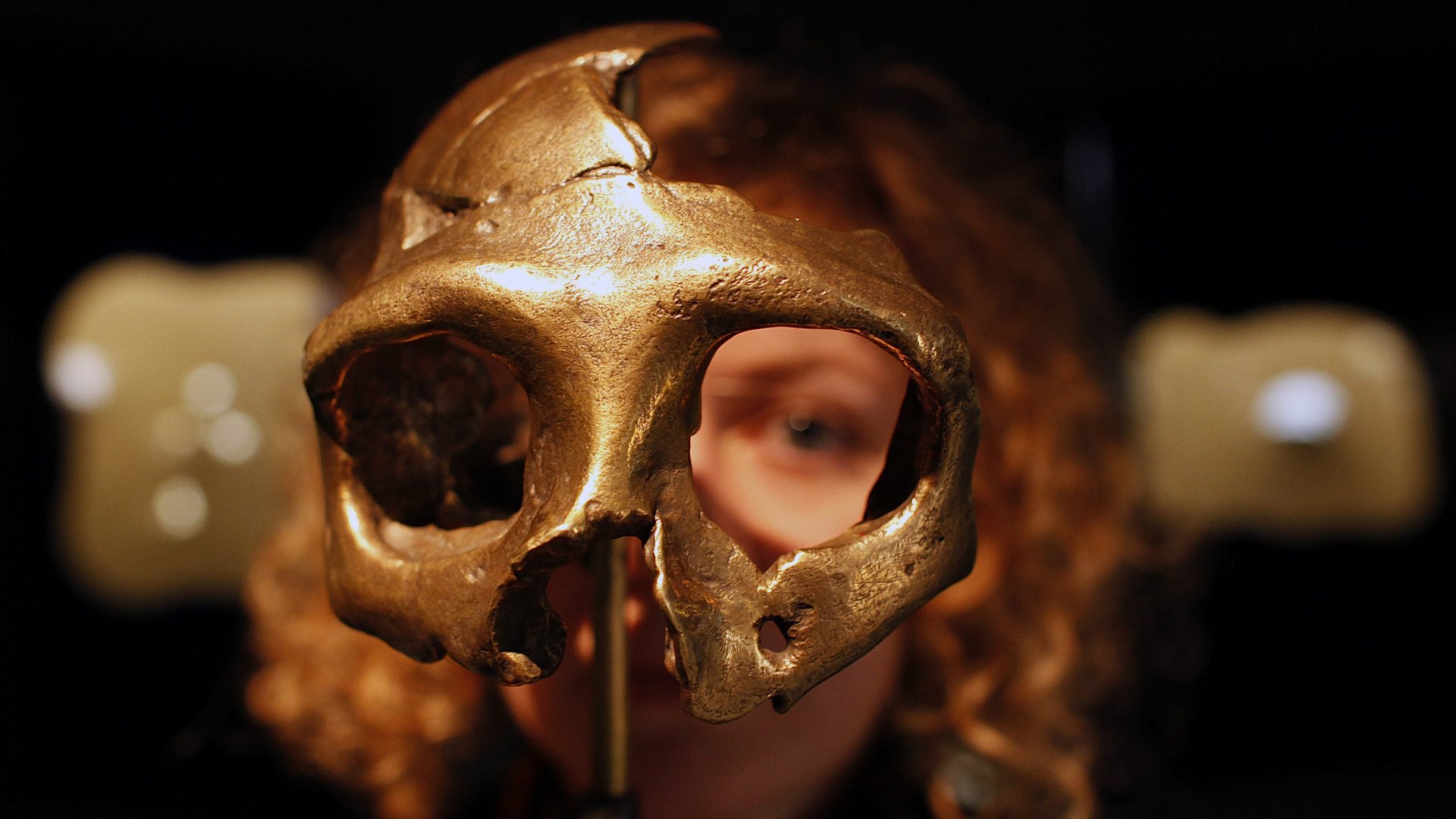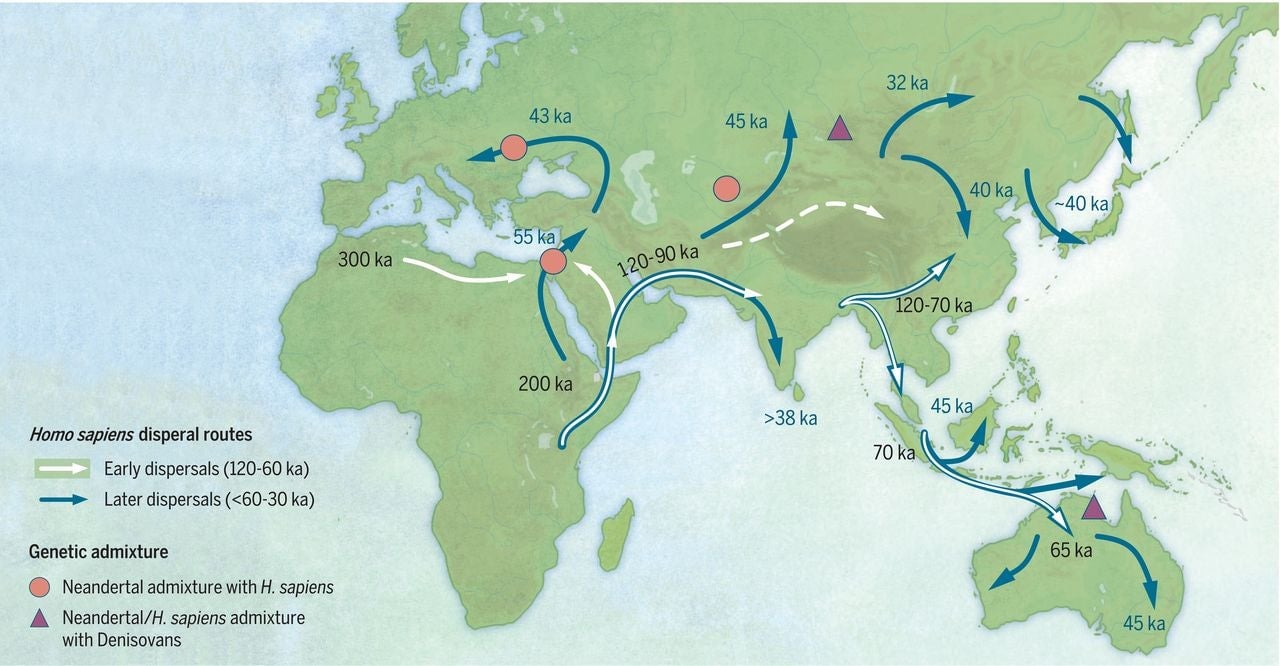Early humans migrated out of Africa much earlier than we thought
The traditional human origin story maintains that modern humans, or homo sapiens, evolved in Africa and then migrated in a single wave to the Asian continent about 60,000 years ago. It’s better known as the “Out of Africa” model. Today, researchers are revising that narrative.


The traditional human origin story maintains that modern humans, or homo sapiens, evolved in Africa and then migrated in a single wave to the Asian continent about 60,000 years ago. It’s better known as the “Out of Africa” model. Today, researchers are revising that narrative.
According to a study published this week in Science, new discoveries over the last decade have shown that modern humans likely originated from several migrations from Africa that began as early as 120,000 years ago. Researchers have found fossils in southern and central China dating between 70,000 and 120,000 years ago or 120 ka (kilo annum).

The original Out of Africa theory isn’t completely inaccurate. The early migrants were likely small groups of foragers. “A later, major ‘Out of Africa’ event most likely occurred around 60 000 years ago or thereafter,” said Michael Petraglia, one of the coauthors of the study and a researcher at the Max Planck Institute for the Science of Human History.
There’s also new evidence that modern humans interbred with Neanderthals as well as the more recently discovered relatives, the Denisovans, and other hominin groups, a sign that homo sapiens and other groups overlapped in Asia and interacted often.
According to the authors of the study, complicating the origin story of humans calls for more research in previously unexplored parts of Asia and more complex models showing the dispersal of early humans.
“Indeed, what we are seeing in the behavioral record is that the spread of so-called modern human behaviors did not occur in a simple time-transgressive process from west to east,” said Christopher Bae of the University of Hawai’i at Manoa, another coauthor of the study.